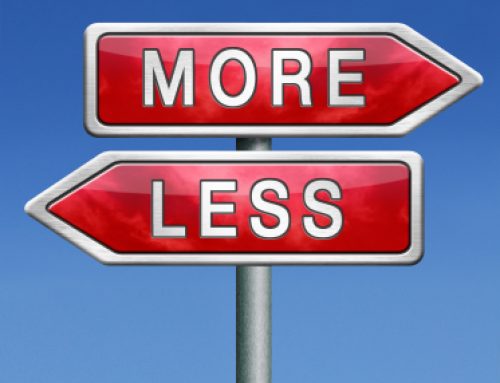Hanging on to emotional baggage is one of the worst things you can do if you are looking for The Right One. It is also one of the things many singles are likely to do.
What is emotional baggage?
There are lots of different ways to define it, but for our purposes we’re going to describe emotional baggage as those past experiences, feelings, emotions, and thoughts that linger in our minds and affect our current situation. These are the things that we carry around with us that end up creating difficulties in our current lives. In many cases, they actually can re-create themselves in a way that causes us to live them over again as if they were brand new.
The term “emotional baggage” has long been used to describe this situation, and it’s actually a very good term for this purpose because it creates the picture in our minds of physically hauling stuff around with us. It doesn’t take a great deal of imagination to picture yourself lugging a huge suitcase (or two, maybe three) at every step.
What’s in the suitcase? Whatever it is you’re not yet willing to let go. Maybe your emotional baggage is just like mine—the memory of a previous relationship where you thought you found The Right One but he turned out to be something else; or perhaps it’s a pattern of interaction from your past where you’ve not had very healthy relationships and you’re continuing with that pattern. Other things commonly found among our emotional baggage include fears, worries, disappointments, behaviour, dreams, fantasies, hurts, anger, and much more.
It is important to let go of emotional baggage for a number of reasons, chief among them being that it is the only way for you to be emotionally healthy and stable. The more baggage you carry with you, the less you are able to be emotionally strong, capable, and steady. Why? Because your time, energy and effort are consumed with that baggage, lifting it, carrying it, preserving it, looking through it, remembering it, living with it, and generally keeping it with you through all you other daily activities.
And when your entire focus (consciously or unconsciously) is on keeping that baggage with you, nothing else matters. Nothing else can break through and come into your life, and that includes The Right One.
If you doubt the impact of carrying emotional baggage around with you, try this little experiment.
Fill a handbag or briefcase with a few rocks or something else that’s heavy enough to make it challenging to carry around with you. Now carry that handbag with you everywhere you go for a full day. And I do mean everywhere. Carry it around the house, when you go shopping, as you run errands, as you work, as you drive, as you do absolutely everything.
It won’t take very long for you to get really tired of carrying this heavy handbag or briefcase around with you. And that’s exactly what it’s like to carry real emotional baggage around with you.
Once you let go of emotional baggage, though, everything changes. You feel lighter in a whole host of ways—physically, spiritually, and yes, emotionally. For many singles this feeling is something they have never experienced before and so they get a bit scared and maybe even start to pick up their baggage again. For others, though, the tremendous sense of freedom and liberation that comes from letting go is practically intoxicating and they never look back or even pause from then on.
There are no 100 per cent guaranteed ways to let go of emotional baggage because each person is different and each “bag of stuff” is different as well. There are a few excellent things you can do, though, to help you through this process and get you well on the road to being baggage-free.
-
Let go of assumptions. Just because you have had a particular experience with a partner in the past, don’t assume you’re going to have the same kind of experience with other partners in the future. Start each day with a fresh and open mind, and especially let your mind be open when you meet a person who could potentially be someone you might date.
-
Stop the loop. It’s easy to play the ‘loop’ of past experiences over and over again in your head, much like rewinding and playing a video over and over again. When your mind starts to play that loop , just press ‘stop’ and switch it off, even if you have to do this several times in a row.
-
Don’t give up. Just because your past relationships haven’t worked out the way you wanted them to doesn’t mean future ones will be the same way, so don’t give up on dating or trying to find The Right One. You have to stick with it, no matter what.
-
Break old patterns. When emotional baggage is rooted in past patterns of thought or behaviour, the best way to get rid of it is to break those old patterns. Start by identifying what your previous patterns have been, and then watch for signs of them in your current relationship behaviour. If you find a pattern starting to repeat itself, simply stop, take a deep breath, and make a different choice. Taking my case as an example, when I heard that my boyfriend went out for lunch with a group of female colleagues, and I could feel myself going crazy and wanted to accuse him of being interested in one of them, I took a deep breath, and instead asked him how it went, whether I knew them, and so on.
-
Embrace vulnerability with protection. This might seem like odd advice because vulnerability and protection generally don’t go together. In the case of emotional baggage, though, they can indeed go together in a way that will help you in the long run. Remember to take care of yourself emotionally so that you stay healthy, but at the same time don’t ‘shut down’ your heart completely. Let yourself open up, even if it’s just a little bit, when you meet someone you really like. It’s that vulnerability that will allow you to create greater closeness in your new relationship.
The bottom line is, hanging on to emotional baggage might feel safe and secure to you, but it only seems that way. The reality is that the more you hang on to your ’stuff’, the more you carry it around and drag it around with you, the more it blocks you from finding The Right One and recognising him or her when he or she does actually come along.



